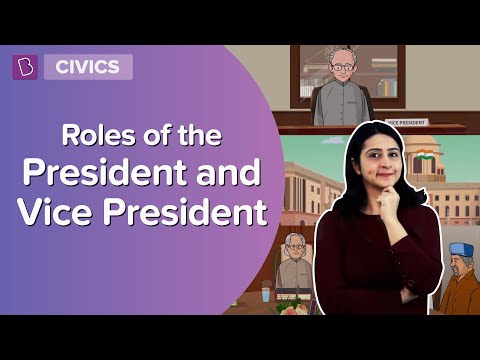According to the NCERT Class 8 Social Science textbook 2023-24, Chapters 3 and 4 have been merged as ‘Chapter 3 – Parliament and the Making of Laws’.
In this chapter, you will learn how Parliament enables citizens of India to participate in decision-making and controlling the government. Thus, it makes the most important symbol of Indian democracy and a key feature of the Constitution. Explore more about it by studying CBSE Notes Class 8 Civics Chapter 3 – Why Do We Need a Parliament? You can also refer to these CBSE notes for Class 8 Civics during your exams for revision.
CBSE Notes Class 8 Civics Chapter 3 – Why Do We Need a Parliament?
Why Should People Decide?
The decision of the people matters in a democratic country because:
- A democratic government is run by the consent, approval, and participation of the people or citizens.
- The people in a democracy are the citizens, and they are an integral part of any democracy.
- The people elect a few candidates who represent their collective voices in the Parliament.
The Role of the Parliament
The Indian Parliament is an expression of the faith that the people of India have in the principles of democracy. The Parliament in the Indian system has immense powers as it is the representative of the people.
- Elections to the Parliament are held in a similar manner as they are for the state legislature.
- The Lok Sabha is elected once every 5 years.
To know the powers of the Parliament, watch the below video.

Functions of Parliament
India has numerous constituencies. Each of these constituencies elects one person to the Parliament. The candidates who contest elections usually belong to different political parties. These candidates become Members of Parliament or MPs. Once elections to the Parliament have taken place, the Parliament needs to perform the following functions:
1) To Select the National Government
The Parliament of India consists of
- The President
- The Rajya Sabha
- The Lok Sabha
After the Lok Sabha elections, a list is prepared showing how many MPs belong to each political party.
- There are 543 elected (plus 2 Anglo-Indian nominated) members in Lok Sabha.
- For a political party to form the government, it must have a majority of elected MPs. A majority party should have at least half the number, i.e. 272 members or more.
- The Opposition in Parliament is formed by all the political parties that oppose the majority party/coalition formed. The largest among these parties is called the Opposition party.
For more information on Roles of the President and the Vice President, watch the below video.

One of the most important functions of the Lok Sabha is to select the executive. An executive is a group of persons who work together to implement the laws made by Parliament, for which we use the term government. The Prime Minister of India is the leader of the ruling party in the Lok Sabha. When two or more than two different political parties join together to form a government, it is known as a coalition government.
The Rajya Sabha functions primarily as the representative of the states of India in the Parliament. It has an important role in reviewing and altering the laws initiated by the Lok Sabha.
- The Rajya Sabha can also initiate legislation.
- A bill is required to pass through the Rajya Sabha in order to become law.
- The members of the Rajya Sabha are elected by the elected members of the Legislative Assemblies of various states.
- There are 233 elected members plus 12 members nominated by the President.
2) To Control, Guide, and Inform the Government
The Parliament begins with a question hour. The question hour is an important mechanism through which MPs can elicit information about the working of the government. By asking questions, the government is alerted to its shortcomings. The government also comes to know the opinion of the people through their representatives in the Parliament (the MPs). In all matters dealing with finances, the Parliament’s approval is crucial for the government.
3) Law-Making
Law-making is a significant function of Parliament. You will learn about it in the next chapter.
Who Are the People in Parliament?
Parliament now has more and more people from different backgrounds. There has also been an increase in political participation from the Dalits and backward classes. Some seats are reserved in Parliament for SCs and STs. Similarly, there is a reservation of seats for women.
We hope CBSE Social Science Notes for Class 8 Civics helped you in your studies. Keep learning and stay tuned for more updates on CBSE and NCERT. Download BYJU’S App and subscribe to the YouTube channel to access interactive Maths and Science videos.
Frequently Asked Questions on CBSE Class 8 Civics Notes Chapter 3 Why do we Need Parliament?
What are the benefits of the opposition parties?
The opposition’s main role is to question the government of the day and hold them accountable to the public.
What are the functions of the Vice President of India?
The office of the Vice President is the second-highest constitutional office after the President and ranks second in the order of precedence and first in a line of succession to the presidency.
What are the functions of the Rajya Sabha?
1. Functions as a Legislative body 2. Debating chamber 3. Federal chamber
Comments